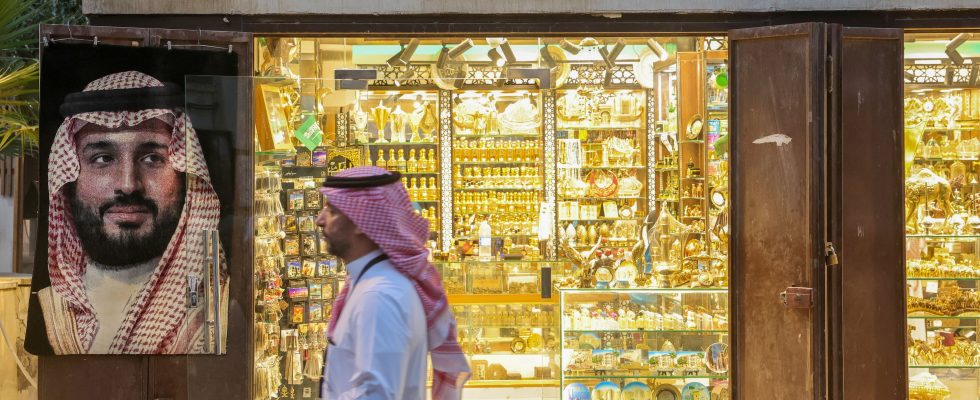It all started with a drunken brawl in 1952 during a diplomatic reception in Jeddah. A 19-year-old Saudi prince is refused a final drink by his host, the British vice-consul. Already drunk, the young man draws his gun and kills the diplomat with several bullets to the body. He will be imprisoned for life. Embarrassed, King Ibn Saud, founder of the kingdom and protector of the holy places of Islam, made a radical decision: he banned the consumption of alcohol throughout Saudi territory, without exception.
For 72 years, Saudi Arabia remains the only country in the world, with Iran, to respect this strict prohibition, to which even luxury hotels and areas reserved for Westerners comply. Prison sentences, heavy fines and the possibility of being whipped in public deter potential offenders, while foreigners risk deportation. “We get used to it, obviously, but such a ban weighs on daily life when you have just arrived from Europe,” explains a French expatriate, who confides that the only place to have a drink in Riyadh remains the French embassy. . Often, we raise it in the diplomatic bag…
An imperative for luxury tourism
At the start of the year, Crown Prince Mohammed bin Salman (alias MBS) opens a breach in the prohibition decided by his grandfather: according to Reuters, a first alcohol store will open its doors in Riyadh in the coming weeks, in the diplomatic district. The sale will be strictly supervised, reserved for non-Muslims, who will have to register on a mobile application, receive a code from the administration and respect a monthly quota. “The Saudi government is accelerating societal changes, but it is trying not to rush the population, notes Robert Mogielnicki, researcher at the Arab Gulf States Institute in Washington. The authorities will authorize alcohol in small steps, first in a very supervised store, then probably on an airline and in an airport, before letting it be used in luxury hotels or a specific tourist area.”
The end of prohibition corresponds to MBS’s desire, since 2016, to modernize its society, with more rights for women, the opening cinemas, the right to listen to music in public or the right not to wear the veil. Above all, to prepare for the post-oil era, the young authoritarian prince is banking on tourism, in which the kingdom invests 1,000 billion dollars for the next ten years. Riyadh builds extraordinary tourist sites on the banks of the Red Sea or in the desert, notably in AlUla with the help of Franceaimed at a wealthy audience.
Therefore, the ban on alcohol appears to be one of the obstacles to the growth of this luxury tourism. “The ultra-rich are not used to prohibitions, so imagine the effect when we refuse them a beer or a glass of wine…”, summed up an executive in the sector last fall. “For the moment, Saudi tourism remains very linked to the religious sector, to pilgrimages to Mecca, so alcohol has no influence on these visitors, indicates Robert Mogielnicki. This societal opening will have major consequences for the development of the luxury tourism, on which the authorities are working hard.” Until now, these privileged tourists have had to make do with the local beer – Moussi, full of flavor but without alcohol – to accompany sunsets in the Saudi desert.
Although society is changing quickly, driven by ultra-connected youth eager for Western freedoms, part of the Saudi population remains anchored in religious beliefs and traditions. Despite his iron fist, MBS still has to take into account the most conservative as well as the Islamic authorities. Alcohol remains, along with homosexuality, a major societal taboo in the kingdom and several voices have expressed their concern about the end of prohibition. MBS should, however, move forward, on this subject as on the rest. “The reality is that many Saudis, without diplomas or training, need the jobs that are developing in the tourism industry, underlines Robert Mogielnicki. The government is aware of this. Even if these kinds of decisions will inevitably annoy the party more traditional of the population, the concessions made to tourists, such as the end of the alcohol ban, will multiply.”
Especially since Saudi Arabia has just won the organization of the 2034 Football World Cup, and English fans should not be thirsty…
.
